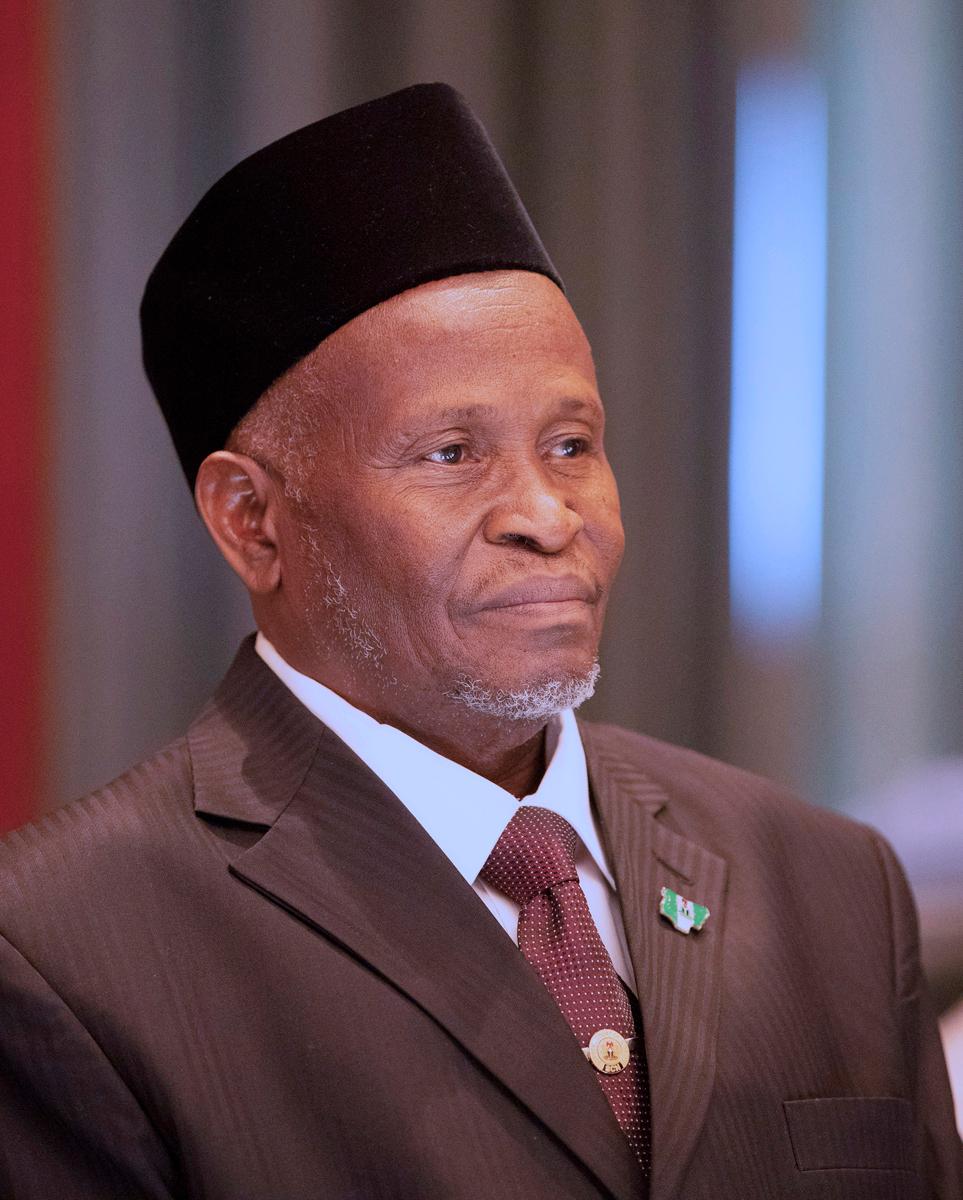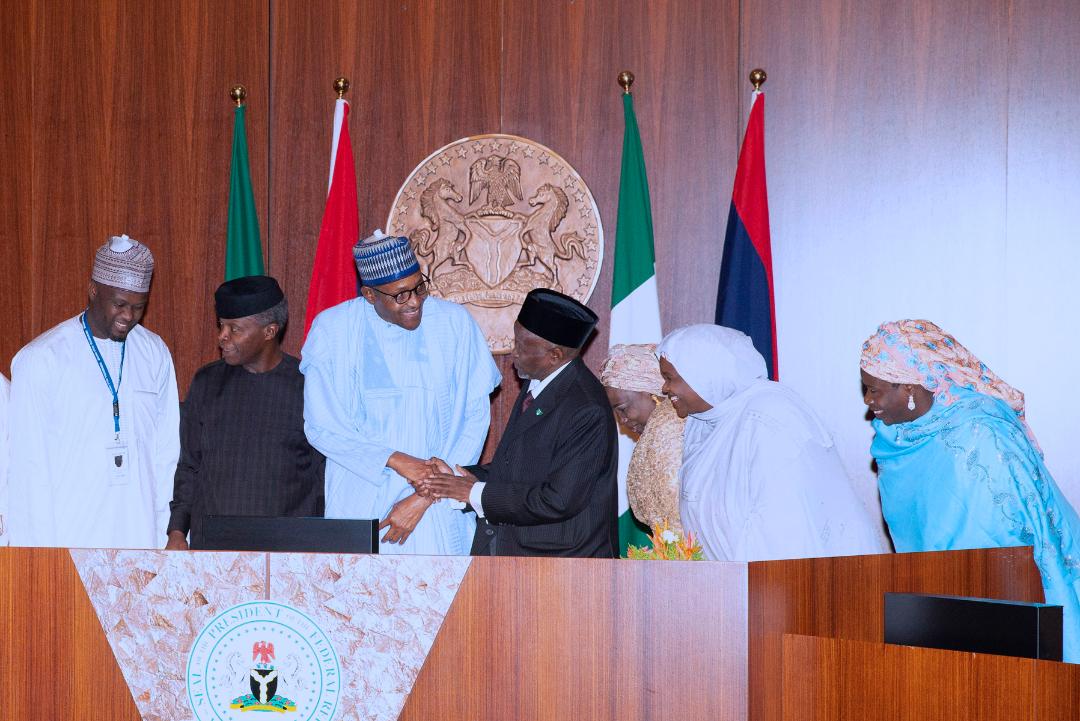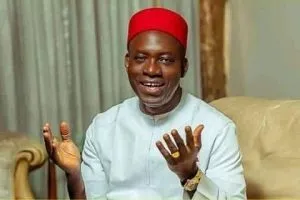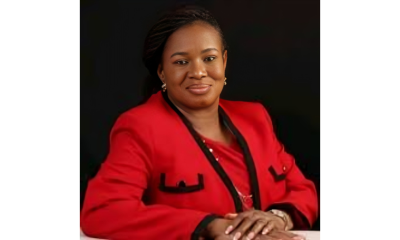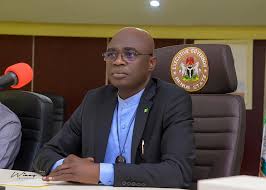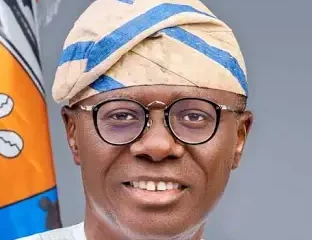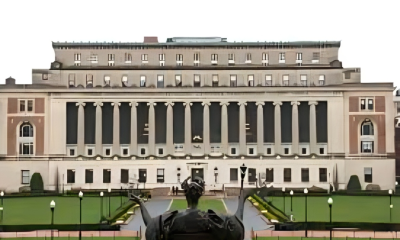Interviews
Next Plateau Governor must Epitomize Gomwalk – Tanko
As political activities leading to the 2023 General Elections are on top gear in Plateau State, Honourable Sati Tanko, Special Adviser to Governor Simon Lalong in this Interview with Jude Dangwam gave a hint on the kind of a new governor the state needs come 2023. He expressed worry that the State falling into the hands of political godfathers
Plateau State has seen different qualities of governors.
What kind of Governor did you think the State needs come 2023?Plateau State should be expecting a leader that will be tolerant, not fanatical about tribe or religion and must be a leader that will carry all the tribes in the state along.
I said this because this idea of minority, majority dichotomy has always shown it’s ugly heads in the various leaderships we have had over the years as a state and it has not done us any good.During the Chief Solomon Lar period when we were together with Nasarawa State, we didn’t see such division along tribes or religion, the dichotomy was about the Southern and Upper Plateau, there was no primodial sentiments as it is now.
Unfortunately, when Solomon Lar left power unceremoniously, because of the coup that toppled him, led by the current President of the Federal Republic of Nigeria President Muhammadu Buhari.
Plateau State has been devastated by a lot of crises. We have lost a lot of properties; we have lost our senses; we have lost our unity; we have lost the umbilical code that bound us as a people. Why? Because tribalism has eaten deep into the fabric of our politics. Religion has eaten deep into the fabric of our politics. We have preferred primordial interest to state interest that will unit us and build our economy.
The kind of leadership I will want is a combination of all the leaders that we had. We must have a leader with the spirit of J.D Gomwalk. Why did I say so? It is because the leadership spirit of late Gomwalk was to go out there and get. It was a competitive spirit that struggled within the then 12 states of the Nigerian nation.
That is why he brought the now University of Jos; he brought Benue Plateau Radio; The Nigeria Standard Newspaper among others. Yhat was the spirit. Solomon Lar came and had the maturity of tolerating all the various tribes of the former Plateau, covering the present day Nasarawa State.
Virtually everybody was contented. He was able to bring all the tribes through his programme of emancipation that he developed and he succeeded in emancipating all the downtrodden tribes of the Plateau. Those tribes that were suppressed by feudal lords were emancipated and that was maturity.
We had Ambassador Fidelis Tapgun whom I consider as a stateman in his own right. He was coming from the bureaucratic setting, as a Permanent Secretary who had worked with so many military governments in the country. So, he knew Plateau State inside out because he was a student of Solomon Lar and he was able to marry some of Lar’s programmes by building schools, and paying the SSCE registrations fees for students among other things in the larger Plateau State and people appreciated those programmes because of the poverty level at that time.
It got to the time of Joshua Dariye who was coming from the economic background as an accountant. He came in with his welfarist package and there was no hunger in the land, lifting up the standard of living of the citizens and I think he did well. The building and commencement of academic activities at the State University Bokkos is a credit to him, an institution that has raised so many people today.
When you talk of Baba Jonah David Jang, he is stubborn to some extent. Stubborn in the sense that he did not allow other factors make his thinking overlap. He remained focused on what he want to achieve. So those factors that wanted to not just pulled him down per say but to change his thinking saw him as a very stubborn leader.
Infact he is a man that came with a kind of programmes for Plateau people. But because of the forces that were and the insecurity that time, Baba Jang became a fighting bull with the Federal authority given the power that be at that time and they tagged him recalcitrant, but to the masses of Plateau State I think he did his best too because he was able to introduce a kind of nationalism that today you find it in the minds of natives of Plateau State.
Lalong came with his peace mantra and I think, to a greater extent he has succeeded because there are no more ‘No Go Areas’ as we had before now. Business and social night activities are going on now than it used to be. Although there are pocket of attacks in hinterlands but the Lalong administration has been able to stabilize the security situation within the Jos-Bukuru metropolis.
So, the kind of leader that I would want in 2023 is someone with the combination of all the attributes of these leaders that saw each playing his part in the best way he can. But above all, somebody that can bring us unity is important, somebody that can tolerate, somebody that can build infrastructures and bring out the best in our institutions in the way they function that’s the kind of leadership I desire.
I want a leader that will focus on peace, somebody who will address our education, the agriculture, somebody who will give the desired energy to our commerce by building our economy to make Plateau economically viable. We have always been considered as a civil servants state, so I want a leader that will come and change that narrative.
Across political parties, do you see such an ideal leader amongst the aspirants for the governorship seat come 2023 in Plateau State?
For the first time in the history of Plateau State, I can see from the array of aspirants both in the ruling party and the opposition parties who can bring this to bear. Because I can see that they have a very rich credentials, and to be fair to them, there is no one that can not govern Plateau State given their credentials.
What are your fears in the whole politicking leading to the choice of the ideal leader come 2023 considering the arrays of aspirants?
My fears is about the money bags! We don’t want money bags to hijack our political system. Where people will plant surrogates and psychophants or cohorts, at the end of the day they will be answerable to their godfathers and not the people of Plateau State. That’s my fear about the kind of leadership that is emerging. I rather want a leader that will emerge from the true reflection and the aspiration of the people of Plateau State!
Interviews
Only Experienced and Authorised Body can Train the public in Auctioneering Sector-Kiliya

Recently the president ,Nigeria Association of Auctioneers, Alhaji Aliyu Kiliya, spoke to our Correspondent Raphael Atuu, on the need to reorganised the Auctioneering sector and it’s importance to national economy growth. Alhaji bore his minds on issues affecting the sector and
stressed that only the association of Auctioneers can train and educate the public on the best practices which are accepted world wide, this and many others excerpt…
Question.
Answer. Thank you very much , my name is Alhaji Aliyu Kiliya, the president of Nigeria Association of Auctioneers, am from Zamfara state of Nigeria.
Question, How did you venture in the Auctioneering business?
Answer. It dated many years back,I have been in the business for over forty years, after my retirement from public office from Sokoto state, that is after working in North Western state of Nigeria , as secretary of Board of Survey,, I venture into the business, which I was elected the Zamfara state chairman of the body, I later became the zonal chairman of North West ,which I did two terms and eventually I was elected the National President, I have done my first term ,am going on the second term now.
Question. How is this sector important to national building?
Answer. Thank you very much . You know work is mainly to sell properties out to the public . The National Association of Auctioners have in the past ,raised money to sponsor 2017,2018, and 2019 budgets. This was made possible after I wrote to then president that we should be permitted to sell some national assets to raise money which we did. So,coming back to your question, if Mr president can allow us to do so, we can raise money through sells for the country and raise money to implement the budget, the wount be any need to borrow money for that.
Question, sir,I can see many of your members running up and down about training of the members by another institution?
Answer. Laughter. Is very funny how we play in this country. We are taking about a sensitive organisation which deals with important materials and properties guided by law,operate by given standard rules and regulations ,then someone or a group of persons will come in the name of institution to train people? The truth is ,only experienced members of Nigeria Association of Auctioners led by myself as the president have the right to train the public on best practices of the association .I advise the public, not to be misled by anyone to fall in trouble through short change information by any institution who is soliciting or calling people to come for training.
Question. As the president what is the way forward sir?
Answer . The way forward is for the current administration of president Tinubu to partner with us to increase the revenue for the government. These are things I have done for previous administrations and am ready with my team to do. One thing about the business of Autionering is that ,most of the government officials don’t know what belong to government even after the privatisation. For example, the managing director of Alcon once came to my office to appreciate me for putting him through and the money he made through the association. I also educated most government agencies that core assets remains government properties not buyers and money is made here too.
Question. What are some of your achievements?
Sir The achievements are a lot ,but I will mention a little , I personally stopped buyers from taken away core assets of public companies away, I also approached Bayero university Kano to have the public and our members be informed on public Autionering education in Hausa,Igbo,Yoruba and English, I was asked to bring the curriculum, we also have a bill at national assembly to regulate our practice, I recovered some government properties taken away by members of the public after government privatised some companies, I printed original registration forms for our members to stop forge members and impersonation, etc.
Question Aside the auctioniing, what other things do you do sir?
Answer. I do many things,am a farmer ,business man and consultant. Am a consultant with the bank of industries, also an agent with the Asset management debt recovery,,Auctionering consultant with the Transmission company of Nigeria, consultant with AG mortgage bank, retained Auctioners with cooperate affairs commission,,registered auctioner with NNPC,,Unity bank plc, and various public institutions ..
Question. Sir. With all these many years of practice and leading the sector from local to regional and national level, do you think you still what to offer ?
Answer. Yes!
Question. Like what ?
Answer. Nobody is tired of serving his father land ,especially if you love it. The sector is part of me and I have contributed all to make it grow to this level , though I have reached where I want it to be, my plan is to stabilise it to level of no misbehave by members, through quality education, practice the business with the laws governing it, working as a team and in unity, discipline of members, and above respecting the constitution of the body,so that nobody can wake up one day to come deceive our members and Nigerians . We also partner with EFCC, ICPC,Police,judiciary and other sectors in the country to operate our business, therefore we need to be always on the right track backed by law.
Interviews
Tinubu Needs Vibrant Media to Uphold Democratic Tenets, Build Progressive Nigeria–Dr Akwaya

The Federal Government has been advised to establish a Special Fund for the media industry in the country just as the one created for the SMEs considering the challenges confronting the news sector. The Publisher and Editor-In-Chief of the Daily Asset newspaper, Dr Cletus Akwaya said the media is needed to strengthen democracy.
In this interview with MATHEW DADIYA, Dr Akwaya, a former Commissioner of Information from Benue State, insisted that the government must discard the idea of treating the media as enemies or as rivals. The interview coincided with the 6th anniversary of the Newspaper published by Asset Newspapers Limited.The Daily Asset Newspaper marks its six years anniversary since it was launched on the 12th of June. What would you say has been the achievements so far?
Well, it is a going concern. Six years in the journey of a lifetime can be said to be a very short time indeed. What we have tried to do in the last six years, is to lay a solid foundation for an enduring media institution that will address the needs of Nigerians and the needs of the people of this country.
So, if we are to count our achievements in the context of that foundation, then we can say that we have done very well.
Have we achieved our targets goals, our objectives? Certainly not. But as I’ve said, it is an ongoing concern, and every day presents new opportunities and new challenges as well. And ours is to continue to be well prepared, to continue to re-strategize, to re-energize so that we can continue with the journey. Building such an institution cannot be a day’s job and we are not pretending that we can have it all done within a day. So, it is a work in progress and I can say so far, so good.
Looking at the newspaper, when you launched it, a lot of people were doubting the ability to sustain it, surprisingly it has been sustained for six years. What magic have you done to keep it running?
It is magic indeed. Sometimes I even wonder how we have been able to navigate this difficult terrain in the last six years. This paper was launched on the 12th of June 2017. That’s the technical launching – when it went on the streets with our very first edition. And in that year, six months after that, the nation’s economy went into a recession. What that means is that there was no growth in the economy. Rather, it was retrogression and that affected all the facets of the nation’s economy, and I can say it without any fear of contradiction, that the media industry was the worst hit.
Particularly the newspaper segment, in the sense that with the crisis in the forex market which has continued till date, all the input of production for the newspaper were import-based, therefore critical items like the Newsprint, the plates,the ink, the computers, the softwares and all kinds of accessories including the platemakers, developing machines, and so on were all imported. None of these technologies were made in Nigeria. None of the raw materials is found or obtainable in Nigeria. So, we had a problem and it was not only Daily Asset’s affairs.
Many other newspapers faced similar challenges. Though, those that have been in the business for long, probably had developed shock absorbers and were able to contend with the shocks that came with the incumbent economic weather.
So, as a new establishment, we had to, as it is often said, think out of the box and make our mistakes along the line. We tried out some experiments, failed in some instances, succeeded in some others, all of which has brought us to where we are today. We are grateful to our numerous supporters, stakeholders, and staff that have been part of this journey.
The various stakeholders, including distributors and vendors, the printers and all other partners, suppliers. Most of them have to supply on credit and wait endlessly to be paid. It has not been easy, but I can say that with prudent management and superior strategy, we were able to stay on the beat and keep the journey going.
The media industry is transforming very fast, especially with the launch of the online media platforms, posing a challenge to the conventional media. What effort are you putting in place to transform Daily Assets and make it competes with other dailies?
It’s a challenge, not only in Nigeria. It’s a global challenge. With the advent of the internet and its penetration to the nooks and crannies of our communities, it has posed a challenge because the internet has now come with the new media and the social media, which has ushered in the era of digital journalism.
Now, as an organization, we started as a hardcopy newspaper, so we had the printed edition. During the COVID-19 pandemic and the lockdown that accompanied it, we had to learn new things because of the circumstances. So we introduced the E-paper. The E-paper is a complete replica of the hard copy edition, which is circulated digitally or electronically, and it is very convenient because it can be read around the globe; in Europe, Asia, people can access the e-copy and feel at home, as though they were in Nigeria. What the vendor could not do, the places the vendor could not reach, the e-copy reaches there, and on time.
Before now, people who traveledl to their various villages on holiday may not have had vendors to supply copies of the printed edition of our newspaper, but the e-copy has solved that problem. We introduced the e-copy and that technology during the lockdown because people were not allowed to go out, vendors were not allowed to sell the papers, so we introduced the e-copy and it is doing very well. People get the E-paper delivered to them, and people come to our website at the www.dailyasset.ng to subscribe and obtain e-copies every day. That’s the innovation that we did.
| Home Page Zox Daily Asset OnlineTruth Is Treasure |
As you mentioned, the online media is one of the developments, and so we are not left out. We built a robust website and the Daily Assets website has a very commendable traffic from around the globe.
Sometimes it amazes me that when I go at the backend of the website and I try to analyze the patronage of the website, region by region, I discover that more people from outside Africa are reading our paper. You have readers from Australia, Canada, Russia, The Netherlands, Argentina, Brazil, and sometimes from Asia reading our newspaper.
Oftentimes, I discover that apart from Lagos, the traffic from these countries outweighs the traffic from Nigeria.
I asked myself, is this paper an international newspaper? Because the readership online appears to be coming more from outside the country. So it speaks to the credibility of the paper, the quality of our journalism and production, and of our news and our style, which is breezy, friendly, also stylistic because we’ve trained our reporters in a manner that we present our news stories in a language that is easily understood by all. You don’t need to have a dictionary by your side before you read our stories.
We appreciate that we are not writing academic papers. We write in a way that the language is clear and there’s clarity of presentation in the way we handle and treat our news, so all this has been going for us. There are developers around the social media platforms, we have linked our website to most of the social media handles. Our website is linked to Twitter, Facebook, Instagram and we are also linked to WhatsApp.
We are researching the possibility of linking with more social media platforms, so that wherever you are, whichever choice of social media is friendly to you, you can still access our website from there. So, that we have been able to do. Yes, the general feeling is that the online revolution will lead to probably the death of printed newspapers, but as a player in the industry I beg to disagree.
If you pick some of the advanced copies of the West, where the penetration of the internet is almost 100 percent, and where it all started, that’s journalism wise, even though the online appears to occupy a lot of space, more and more newspapers are being established. Where the circulation figures dropped initially with the advent of the social media and online media, the circulation figures are returning to their earlier status.
Not exactly in terms of the quantum; but rather than be on the decline, it is set for recovery so progress is being made. Readers have come to understand the distinction that exists between the online media and the traditional media. In the context of the Nigerian society, we have laws that still give traditional media the upper hand over and above the new media. And those laws cannot be changed overnight. It will take a very long time before our society or our legal system and the national assembly are able to repeal those laws.
For instance, we have a procurement law in the country which makes it mandatory for the procuring agencies of government to place tender notices in national newspapers. It’s a law, and there’s nothing anybody can do about that that place such advertisements in the national newspapers.
We have also by our laws, that alternative methods of service or judicial papers that quote someone’s subpoena and adders, notices of court and adders, are served when published in the newspaper.
These are the privileges that the online or digital media is not yet enjoying because the laws have not been repealed. In cooperation of trustees and even certain companies, and even dissolution of companies are winding up and receivership and so on, all of these before they can be consummated, the laws provide that communication or publicity must be made in the newspapers.
You have issues of change of name, for instance, all of these things must come to the newspapers. So, in a way, the newspapers still have a role to play. And then, the generation that grew up reading newspapers is still the generation that is in charge of Nigeria. Our president, Bola Ahmed Tinubu, growing up, even though he schooled in America, back home in Nigeria, computers were not available when he was growing up. The newspapers were there, however. Former president Buhari and all other persons in leadership positions, especially the public sector leadership are people who grew up reading and relying on newspapers as a major source of information.
Before the advent of the online media, this is the orientation they had through their growing years and it has stayed with them. They are only adapting to the new media. The newspapers will continue to have their relevance for reference, for research because they are more reliable and sometimes they can be more legally acceptable. This is because the online media is so much more prone to manipulation. News items that are put out, in as much as they get to readers instantly, or as soon as events occur — which is the greatest advantage — may not be verified and could be changed at the whims of whoever is disseminating the information, unapologetically.
You will see an item you want to rely on the information, and the next minute, the information is changed and there is no apology. How then do you rely on this? Also, you have people residing in countries outside Nigeria, around the world posting materials online that are consumed in Nigeria. It is for this reason that even litigation is finding it difficult to catch up with these people who infringe on people’s rights in this regard.
Because, number 1: which jurisdiction are you going to apply in dealing with people who cross the red lines? If the person who made the posting resides in the UK, are you going to use the UK laws to try him, because the item emanated from the UK, but was consumed in Nigeria, so which jurisdiction are you going to apply in trying to bring justice.
So these are some of the challenges with the new media. So, we understand all of that and we believe that the public is also coming to terms with the fact that the newspaper is the father of journalism. The newspaper started journalism, and remains the father. The electronic, new media and others that may even come; the African proverb goes, “the son cannot be older than the father”.
Having spent six years so far, where should Nigeria be looking at Daily Asset and where do you want it to be in the future?
A lot has happened in the last six years with Daily Asset. We started as a weekly newspaper on June 12, 2017. We chose that date deliberately because this newspaper is to be a voice to the voiceless, and will stand to defend the tenets of democracy of a free and liberal economy, and of the rights and liberties of citizens.
So that people, irrespective of their creed, of their ethnicity, of their orientation, background, class or anything, should have a voice and should be able to have space to realize their God-given potentials and we are to support citizens irrespective of who they are, and to also hold the government accountable in line with the provisions of the amended 1999 constitution.
The media has been specifically charged in section 23 to hold the government accountable. To that extent, we have been doing that. Now, from a weekly newspaper, we transmuted to a daily on November 19, 2018.
This happened just a year and six months after we started, and from there we have not looked back. We have a program for the annual awards and lecture, which has also been running from the first year. We have had the sixth edition, and we are planning for the next edition already.
The annual awards is a platform for creating role models for the up and coming generation. We live in a country where there is a kind of ironic perception that there are no good leaders in Nigeria. Nigeria cannot be said to have all bad leaders.
Yes, we have a lot of bad leaders, but we also have a lot of good people too who are doing well in their chosen areas of endeavors. So, rather than emphasize on negativities, we should also identify people who are excelling in their areas of endeavors and try to project them, so that society should see them as role models, especially the upcoming generation.
So the idea of the annual awards is to celebrate achievers and people that have excelled, not just to glorify them but also more importantly to showcase them to the upcoming generation, so that they can serve as role models and a beacon of hope to society. I can tell you that this program has become very popular with Nigerians.
They are looking forward everytime to when the Daily Asset awards will hold, because these awards are shown on national television and are attended by people from all strata of society, including traditional rulers, political leaders, professionals and experts in various callings, diplomats, students, youth and women’s groups.
A lot of people now look forward to the Daily Asset annual awards and we hope that the next edition will come up in February. We hope that Nigerians will not be disappointed as another new set of leaders will be recognized and honored.
The media industry is becoming very competitive, and many media organizations are looking to having what one can call, a one-stop media organization where you have solutions to the media or communication needs of citizens.
We are coming towards that direction, apart from the newspaper and the various segments we have presented it from E-paper to the online to the printed edition and other social responsibility engagements that we have. We are also about to mount what you can call a Daily Asset podcast and an online television which will also provide visuals to the stories, to interviews, to the news, to documentaries, to special reports that will be aired on that channel.
This is a way of broadening or widening our horizons so that people who don’t find reading newspapers as friendly, may find accomodations in the television.
Arrangements are in place, and in the not too distance future, Nigerians will hear from us and will hear of the Asset Television, which will begin as a podcast that will cover news, and everything that covers the progress of Nigeria and the progress of Nigerians.
We believe that just like the Daily Asset has become a preferred newspaper for many readers, when that station comes on we are convinced that coming from the same stable, it will borrow from the success story of the newspaper, and within a very short time it will become an institution to reckon with. Nigerians have not heard the last of the Daily Asset.
You enumerated some of the challenges faced by Daily Asset and other newspapers in the country, the president of the Federal Republic is also a media owner – newspaper and television. What advice would you give him in terms of support to the Nigerian media industry, considering the challenges?
My advice to president Bola Ahmed Tinubu will not be because of his interest in the media. He is a democrat, we believe he is a democrat and that is why he has this opportunity to preside over the affairs of Nigeria.
And so long as he upholds the tenets of democracy and free speech, which is the cornerstone of democracy, of freedom of association, and of a transparent free, credible and acceptable election, and of a transparent electoral process that attends to the needs of majority of the people, not a select few, and so long as he enthrones policies that attend to the well-being of Nigerians, be they corporate or individual citizens, then a progressive Nigeria will be possible.
And to that extent, the economy will flourish and every other person will find his level to operate. To say that he should favor a particular segment against the other would be undemocratic. He is supposed to be an impartial president, once he has thorough economic policies, the media will also thrive. There was a time in this country where a newspaper like the Daily Times and the National Concord could sell a million copies on Saturdays.
The Weekend Concord sold 1 million copies in a day. There were times The Punch would sell 600,000 copies a day. There were times many newspaper companies would sell 500,000 copies in a day. Those times, we look back with nostalgia, not just because of the new media and it’s challenges we have just discussed, but because of the bad economic policies.
At this point, when he had that scenario, the Okwu Igbokwu newspaper Mill company, in Cross Rivers State was producing Newsprint and newspapers were getting the Newsprint locally. So it was easy to print and sell newspapers at lower cost prices. Now, everything is imported.
So, if the economy bounces back, it will be good to have investors producing the raw materials that we need. That would bring down the cost of production, and a lot of other things may follow. But we need to understand that the media will need certain economic policies that will support the media sector, because the media provides public education of mobilizing the people, informing the people, of giving orientation to the people even on government policies.
So the government cannot but look at the media sector and enthrone policies that the media operators will be able to find a more conducive, enabling environment to operate. Let me add that the newspaper is the most difficult business anybody can run in Nigeria.
The newspaper is the only product I know of, that is produced and sold below the cost price. I am not aware of any other product that a business man would produce and sell below the cost price. Whereas it costs almost a thousand naira or sometimes nearly 2,000 naira to produce one copy of a newspaper, a copy is sold at 200 or 250 naira, and yet people complain.
It is because they don’t even know what goes into the production of the newspaper. And in a situation where the national economy has suffered recession severally and many industries have closed down and the ones existing are only managing to stay afloat, the income and revenue from adverts is no longer coming, then the newspapers are left to be on their own, so to speak.
Unless the economy is rejuvenated, and that cannot be done in a day. If there are some friendly policies, for instance, duty waivers on import of Newsprint and other newspaper production items, that would go a long way in reducing the cost of production. Special funds could be created from the banks for the media sector, just as we have special funds made available for SMEs and agriculture.
These are facilities that media organizations should be able to access at reasonable interest rates and favorable conditions to make payment possible. There are various ways that I think the federal government can act to protect the media industry, particularly the newspaper.
It is in the interest of the government to ensure that the media thrives, because you cannot have democracy without the media, and that is why a former US president once said, if he were asked whether there should be a government without newspapers, or there should be newspapers without a government, he would choose the latter. Because if we have newspapers doing their jobs in the way it’s supposed to be done, then there’s no way government cannot be held accountable.
Once government are held accountable, the people will rejoice. And you can see that the media has been at the forefront of straightening our democracy.
You are aware in this country that through the interrogation and reportage of the newspapers, even speakers of the House of Representatives, Senate Presidents were forced to resign, ministers were compelled to resign because of investigative reports that the media brought out about their leadership.
Democracy needs the media, Nigeria needs the media. But for the media some of the so-called elected leaders would have turned dictatorial and authoritarian but were only restrained because of the media.
You are aware that a president was even alleged to try to perpetuate himself in office. In this country, it was only the media that made it possible for such tenure elongation that was unconstitutional to be stopped and nipped in the bud. We need the media to strengthen democracy, but the government must discard the idea or treat the media as enemies, or as rivals.
There is no rivalry, and there should be no enmity. The media is the watch dog of society. If the operators in the public governance do the right thing, the media will commend but if they do the wrong things and expect the media to commend or cover it up, I think that is where they have got it wrong.
They may be able to get a section of the media to do so, but of course I can assure you that the greater part of the media will always stand by its own tenets of objectivity, truth, fairness and social responsibility in the practice and delivery of news, programs and other services it renders to society.
COVER
Reps Ready to Halt Hardship in Nigeria – Minority Whip, Isa

The Minority Whip of the House Representatives, Alhaji Ali Isa JC, has assured that the 10th House of Representatives would work round the clock to halt the hardship confronting Nigerians as a result of the recent removal of fuel subsidy.
Isa who is representing the Ballanga/Billiri Federal Constituency of Gombe state, made this known in an exclusive interview with DAILY ASSET’s Eddy Ochigbo in his office at the House of Representatives.
He expressed gratitude to his colleagues for giving him the opportunity to serve the House as Minority Whip, pledging to serve in the interest of all Nigerians.
He also spoke on other burning national issues.Excerpts:
On his impression about the Speaker of the House of Representatives
“Mr Tajudeen Abbas, the Speaker, is very complete gentleman.
A man that has honor and dignity. The first day after the inauguration of the principal officers, he said his major concern, what the House can do would be to ensure that Nigerians that are facing a lot hardship are supported. He has started a lot of consultations with members. First concern is the removal of fuel subsidy. We are aware that Nigerians are facing a lot of hardship. Workers and even the unemployed are suffering from the consequences of the removal of fuel subsidy. But as a leader who is concerned, the Speaker has personally stepped in to see how we can make inputs that will bring about some palliatives to suffering Nigerians”.On his emergence as Minority Whip, a principal position in the House Representatives:
Let me start by thanking God Almighty for giving me the opportunity to even witness the inauguration and also thank my constituents for giving me the opportunity to be reelected as a member of the 10th Assembly. I feel very honored. I came to the 10th assembly just to represent my people and ensure that they get fair treatment the deserve. But after coming to the tenth assembly, my colleagues who are also my leaders across the country, also decided to give me another responsibility. We in the minority in the House decided to show to Nigerians that we are working together. We have four positions in the leadership, the Minority Leader, Minority Whip, Deputy Minority Leader and Deputy Minority Whip. The four positions; after so much consultations; we in the People’s Democratic Party (PDP), were allocated with two positions – the Minority Leader and the Minority Whip, then the Deputy Minority Leader went to New Nigeria People’s Party (NNPP), while the Labour Party (LP) took the Deputy Minority Whip. We know that we have other minority parties, even though the PDP is more with more than one hundred and eighty members. Other parties are less than sixty but what we need in the National Assembly is have everybody’s vote to ensure that the Nigerian voice is head. So we said let’s start by showing leadership by example. So I thank God and honorable members in House of Representatives across the country for considering me worthy to occupy the position of Minority Whip. I feel honored.
Plans for Ballanga/Billiri Federal Constituency:
I don’t think being an APC controlled state would have any effect. Our major concern is just as I keep saying, now we are in governance, the time of politics is over. As far as I am concerned, it is what we can do that our people can benefit. If I lobby for hospitals or schools in other communities in Gombe state, every individual would benefit, no matter which party he or she belongs. The hardship we are facing does not know any political party. So as far as we are concerned, we will work very hard to ensure that projects are brought not only into my federal constituency but to other parts of Northern Nigeria because by virtue of my position as Minority Whip, I represent the north. The position I am holding is not only for constituency but across the country. So we want to work together, even if we are from different political parties, to alleviate the suffering of all Nigerians. Politics will not distract us from bringing development to our people.
On what to expect from the 10th Assembly and how to avoid becoming a ‘Rubber Stamp’
I don’t want to say much about 9th Assembly because I was not part of the ninth assembly. So I don’t know whether they were rubber stamp or not. But one thing I want to assure Nigerians is that we in the 10th Assembly are going to work for Nigerians. We are going to ensure that the voice of Nigerians will be heard, whether it is the voice of the majority or the minority. We will stand by Nigerians and we would work for Nigerians.
His Message to Nigerians
I will appeal to all Nigerians to be patient. We just received supplementary budget today and the major issue we going to consider is like I said earlier, is what would cushion the effect of the subsidy removal. What would reduce the hardship is now our major concern. So I appeal to Nigerians to continue to give us all the necessary support because this House of the 10th Assembly is the house of the common man. It is the house of all Nigerians.



